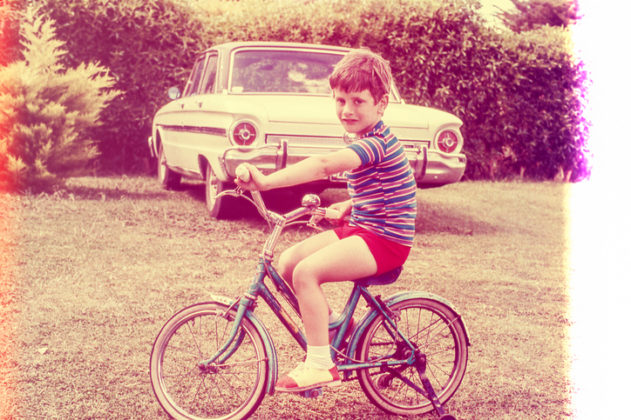While there are broad aspects of male privilege that male children may experience, there is a high price to pay for being bad at being a boy.
Recently, in an auto parts store in Columbus, Ohio, I was called a “faggot” for the first time as a newly out, non-binary femme. I am a 600-pound bearded person who, as of eight months ago, wears solely skirts. I also wear eye makeup from time to time and I carry a handbag.
A few months ago, a friend of mine said, with a real measure of concern in her voice, that she was thankful for my size because it has probably protected me from outright harassment or physical violence related to the way I present myself.
I was outnumbered in this auto parts store in what is considered one of the most LGBT-friendly cities in the country. I wasn’t going to fight them — I plan on keeping those days in the past — but this was not the place for me to stick up for myself anyway. I took it as unlocking an achievement and chose to live to fight another day.
My Twitter feed has been rife with trans-women defending their place in and need for feminism. I find myself wanting to retweet everything in a storm of “This is me!” I want to relate and share my story, but I find myself second guessing whether I have a place at this table. Does my experience as a child match up to those having the conversation about transmisogyny and whether children assigned male at birth who later come out as trans are real women? While I don’t identify as a woman today, I find myself relating on a truly deep level with the common narrative of trans-women’s experiences of forced suppression as children.
Growing up, I was a fat, emotional boy and believed I was bad at being a boy. That I was broken.
I was never good at hiding my emotions. I cried in school and became a poet. I grew bigger and bigger and bigger and my give-a-fuck became less and less. Fewer people wanted to fight me but it didn’t keep them from hurling insults and garbage at me.
Being bad at being a boy even led to an undiagnosed eating disorder. There was already a dangerous precedent in the medical community of dismissing boys with eating disorders. Fat was fat and that meant we were lazy. I again found myself thinking I was bad at being a boy.
“He’s just depressed because he’s fat. He needs to put down the Snickers and get outside and be active,” countless doctors told my mother or angrily told me.
Another echoed phrase from my childhood was “you brought this on yourself.” It came from every form of authority I ran across. The hundreds of fist fights I had been in were my fault because I was fat, lazy, and emotional. Again, I was bad at being a boy.
I was being suffocated by a suit of masculinity that just didn’t fit. The expectations of male children were detrimental to my health and safety.
When I was 17, I told my best friend that I might be bisexual. Her response of “You don’t need that trouble with all the shit you already go through!” put an end to that.
On my 21st birthday, I started down the road to alcoholism. The monster in my DNA was just waiting for a coping mechanism to latch on to.
A decade later, I had a nervous breakdown that resulted in multiple diagnoses and my getting sober. All of these things from my childhood flooded my consciousness over the past two years and I had no other option but to break.
Here I was, 32 years old and bad at being a man.
At around six months sober, I came out as Queer, Gender Non-Conforming and started wearing skirts full-time and makeup occasionally. It felt good.
The first time I put on a dress, I cried. I felt beautiful for the first time in my life.
In early March, I announced that I was changing my middle name to Maggie. People close to me call me Maggie and it fits in my ears like custom-made earbuds.
My particularly violent experience as a young male directly affected the person I became, good and bad. Had I been nurtured (outside of my family) in any way to honor my emotions, then I may have felt beautiful a lot sooner. I may have come to be my true self sooner. I may have been good at being a person earlier.
While there are broad aspects of male privilege that male children may experience, there is a high price to pay for being bad at being a boy. To discount their lived experience is to tell them all over again “You were bad at being a boy, and for that, you are bad at being who you are today.”
Dain Maggie Down is a Non-Binary storyteller, writer, and advocate. They are originally from New Jersey, have been to 45 states, and currently reside in Columbus, Ohio. They have self-published chapbooks of poetry, been included in several online literary journals, and is a cat person pretending to be a dog person. You can find them on twitter @dainmaggiedown.
Other Links:

